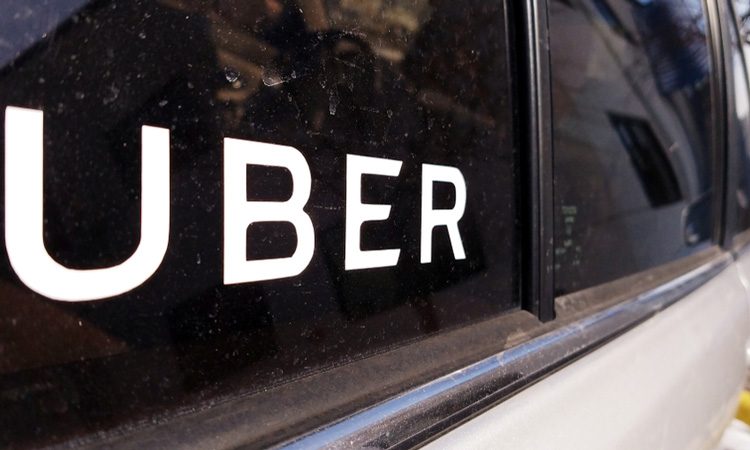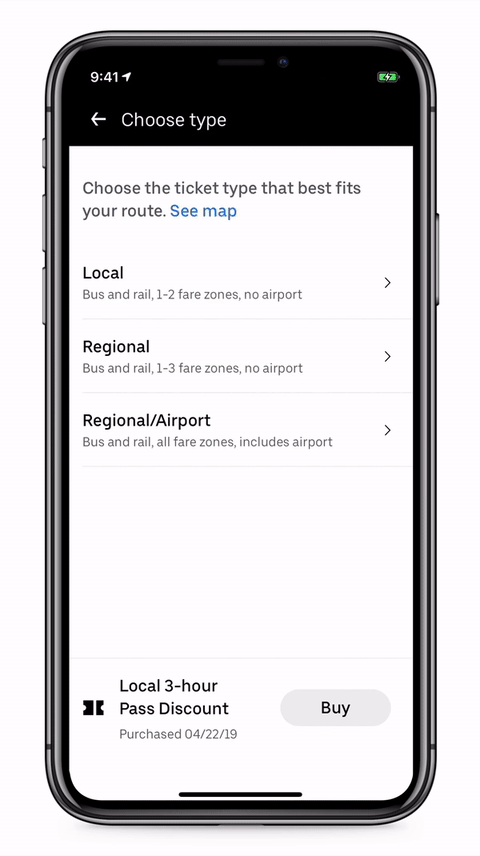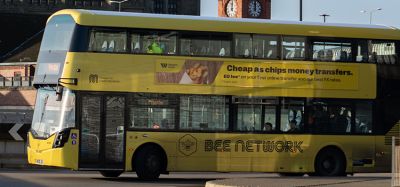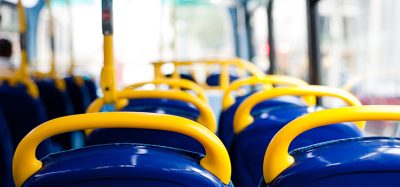Uber reveals strong initial performance of Uber Transit in Denver
- Like
- Digg
- Del
- Tumblr
- VKontakte
- Buffer
- Love This
- Odnoklassniki
- Meneame
- Blogger
- Amazon
- Yahoo Mail
- Gmail
- AOL
- Newsvine
- HackerNews
- Evernote
- MySpace
- Mail.ru
- Viadeo
- Line
- Comments
- Yummly
- SMS
- Viber
- Telegram
- Subscribe
- Skype
- Facebook Messenger
- Kakao
- LiveJournal
- Yammer
- Edgar
- Fintel
- Mix
- Instapaper
- Copy Link
Posted: 9 July 2019 | Intelligent Transport | No comments yet
New collaboration between Uber, Masabi and the Regional Transportation District (RTD) of Denver gives the Uber app another function; real-time information and ticketing.


With Uber Transit ticketing now available to all riders in Denver, Uber has revealed that more than 1,200 Regional Transportation District (RTD) tickets have been sold through its app, with


growth averaging 42 per cent each week during the rollout period. Uber Transit ticketing was launched to a small cohort of users in May, and became available to 100 per cent of Uber users in Denver on the 25 June 2019.
Riders are using the Uber app to plan and book their transportation from home, to work, to appointments, and to the airport. While nearly two-thirds of tickets sold were for local rides, regional rides – including trips to and from Denver International Airport – were the second-most-popular option for in-app ticket purchases, at 23 per cent.
Since Uber Transit journey planning launched in January, Uber trips in Denver that start or end at a transit station have grown 11.6 per cent. Denver riders were the first worldwide to use Uber to plan their transit trips with real-time information and end-to-end directions.
The collaboration involving RTD, Uber, and Masabi is the first to offer real-time transit information and ticketing within the Uber app. Following a staggered rollout over several weeks, all Uber riders in the Denver metro region are now able to buy RTD tickets through the Uber app.
Other new data includes:
- The number of repeat ticket purchases using Uber Transit has increased every week since ticketing launched. As of the week of June 24, approximately 25 per cent of tickets sold were purchased by users who had previously purchased tickets on the app.
- Tickets sold on Uber Transit have increased each week, reaching over 200 weekly tickets as of the last week of June.
RTD CEO and General Manager, Dave Genova, said: “The data we’re seeing from the launch of Uber Transit affirms that people appreciate choices, and that the future of mobility lies in providers working together to deliver on public expectations. 1,200 transit tickets sold within the Uber app represents 1,200 decisions actively made to take transit, after considering all options available. And for travellers who take Uber after seeing that RTD is available to them, being made aware of our services ultimately broadens our reach.”
Uber Head of Transit, David Reich, said: “Every week since we launched ticketing, more riders have used Uber to connect to mass transit. Initial numbers show riders are using the Uber platform to plan their commutes from end-to-end, using a variety of transportation options. We’re using this data and insights from Denver to inform the Uber Transit experience in London, Boston and other future cities.”
Masabi Chief Product Officer, Jonathan Donovan, said: “Removing the friction associated with paying and using your phone as a ticket is key to encouraging more people to use public transit. 11 per cent of RTD mobile ticketing customers had not used the transit agency’s bus and train services until they had downloaded the RTD Mobile Tickets app. We strongly believe that the ability to purchase transit tickets within the Uber app in Denver will have a positive impact on ridership numbers as paying and travelling is made easier, leading more people to leave their cars at home and ride transit.”
Buying a transit ticket in the Uber app is easy: After riders enter a destination, they will see “Transit” as an option in the “choose a ride” selector. Upon selecting “Transit,” riders can purchase tickets on all available transit options while also having access to real-time schedules and walking directions to and from transit stations. Uber’s menu bar lets users purchase and redeem a range of tickets available on RTD services, including three-hour, day and monthly passes. Users activate tickets, which are stored in the “Transit tickets” section of the Uber app, when boarding transit services. Once purchased, tickets are available even when riders are offline.
Related topics
Infrastructure & Urban Planning, Intelligent Transport Systems (ITS), Mobility Services, On-Demand Transport, Ticketing & Payments
Related modes
Ride-sharing & Car-sharing
Related cities
Denver
Related people
Dave Genova, David Reich, Jonathan Donovan








